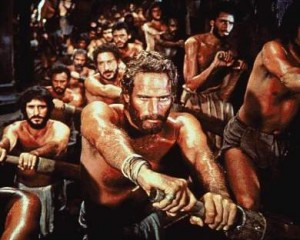- You are here:
- Home »
- Top Story »
- Kessler’s 600% markup on contract attorneys ruled too high. Gee, ya think?
Kessler’s 600% markup on contract attorneys ruled too high. Gee, ya think?
7 January 2015 – A New York federal judge slashed Kessler Topaz’s fee request in an investor class action against Weatherford International Ltd from $14 million to $10.8 million, saying contract attorneys were billed for at too high a markup. U.S. District Judge Lewis Kaplan cut Kessler Topaz’s fee request, saying there was no problem with the firm’s work but that it also appeared to him that the high number of hours wasn’t justified:
“While the court assumes that over 30,000 hours of time were recorded, it has serious doubts … whether this case, handled efficiently and especially for a paying client, would have justified an expenditure of hours that great”.
On the 600 percent markup for staff attorneys, who billed 45 percent of the hours, he said, “the court has been provided with nothing persuasive from which to conclude that this sort of markup is reasonable.” Judge Kaplan approved the entirety of the $193,685 fee request by co-counsel for the plaintiffs.
The overall fee was under 20 percent of the $53 million total settlement in the suit, and Judge Kaplan acknowledged that it’s hard to tell exactly what’s fair in cases like this, because many of them settle, and there are drawbacks to both the percentage-based calculation and the lodestar-based calculation.
Background
In January 2014, Weatherford and several executives agreed to pay $52.5 million to settle allegations that the energy equipment company overstated earnings by about $500 million, causing tax miscalculations. The investors had argued that the company violated the Securities and Exchange Act of 1934 by concealing faulty accounting practices that ultimately caused its stock to tank 11 percent. The proposed settlement class — including court-appointed lead plaintiff American Federation of Musicians and Employers’ Pension Fund, and named plaintiff Georgia Firefighters’ Pension Fund — consists of all investors, believed to be numbered in the thousands, who bought Weatherford stock between April 25, 2007, and Mar. 1, 2011. The investors first brought the suit in March 2011 against the energy equipment company, Weatherford CEO Bernard Duroc-Danner, former Chief Accounting Officer and Vice President of Accounting Jessica Abarca, and former Vice President and Principal Accounting Officer Charles Geer Jr. The suit also named Ernst & Young as a defendant, although U.S. District Judge Lewis A. Kaplan tossed the investors’ claims against the accounting firm in November 2012. He found, among other things, that the investors’ reliance on a series of supposed red flags to support an inference of scienter regarding Ernst & Young’s opinions about Weatherford’s compliance with generally accepted accounting principles didn’t hold up. The judge also let stand claims brought under section 20(a) of the Securities and Exchange Act of 1934 against the executives.

